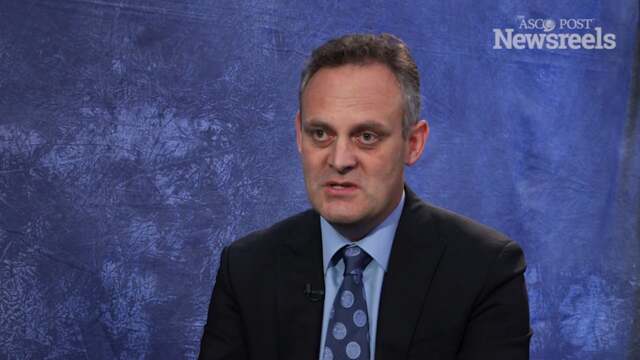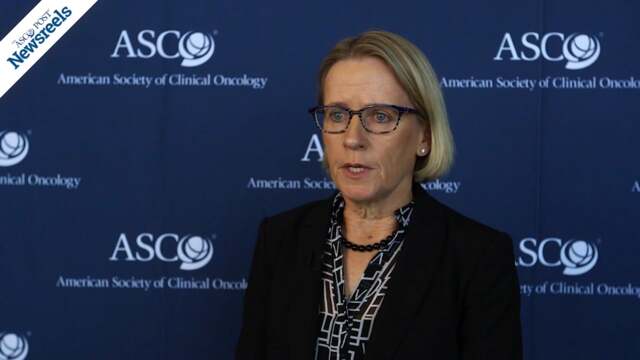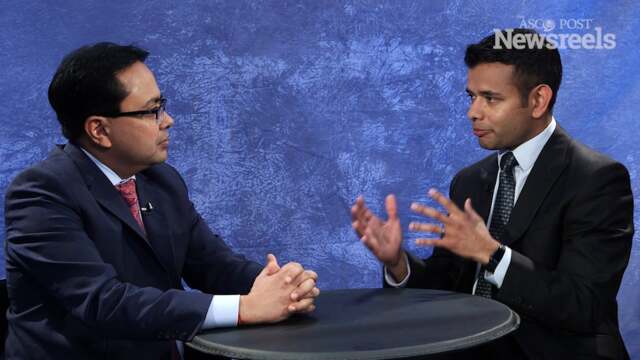Erin Van Blarigan, ScD, on Colon Cancer: The Effect of Diet and Exercise, Results From CALGB 89803
2017 ASCO Annual Meeting
Erin Van Blarigan, ScD, of the University of California, San Francisco, discusses the value of lifestyle recommendations from the American Cancer Society for people who have been diagnosed with colon cancer, including longer disease-free and overall survival. (Abstract 10006)
Dean F. Bajorin, MD, of Memorial Sloan Kettering Cancer Center, and Peter H. O’Donnell, MD, of The University of Chicago Medical Center, discuss their study findings on treating advanced urothelial cancer with pembrolizumab, paclitaxel, docetaxel, or vinflunine. (Abstracts 4501 and 4502)
Julie Vose, MD, MBA, of the University of Nebraska Medical Center, discusses two hematologic abstracts: results from the OPTIMAL>60 study on radiotherapy to bulky disease PET-negative after immunochemotherapy in elderly patients with diffuse large B-cell lymphoma; and an analysis of autologous vs matched sibling donor or matched unrelated donor allogeneic hematopoietic cell transplantation in follicular lymphoma patients with early chemoimmunotherapy failure. (Abstracts 7506, 7508)
Arnaud Scherpereel, MD, PhD, of the University Hospital of Lille, discusses phase II study findings on second- or third-line nivolumab vs nivolumab plus ipilimumab in malignant pleural mesothelioma patients. (Abstract LBA8507)
Jane McNeil Beith, MD, PhD, of Chris O’Brien Lifehouse, discusses long-term study results on a psychological intervention, called “Conquer Fear,” designed to reduce clinical levels of fear of cancer recurrence in breast, colorectal, and melanoma cancer survivors. (Abstract LBA10000)
Neeraj Agarwal, MD, of Huntsman Cancer Institute, and Sumanta K. Pal, MD, of the City of Hope, examine the study findings on androgen-deprivation therapy with abiraterone acetate plus prednisone or placebos in newly diagnosed high-risk metastatic hormone-naive prostate cancer. (Abstract LBA3)





